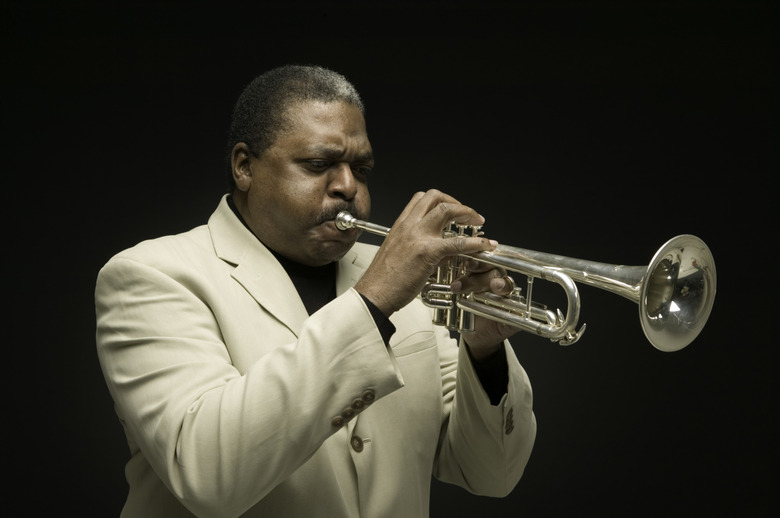Physical Effects Of Playing The Trumpet
In addition to possible allergic reaction to the metal from which the instrument is made, trumpet players may suffer from a variety of maladies involving the muscles, nerves, larynx and heart. According to Sarah Bache and Frank Edenborough, plastic surgeon trainee and respiratory physician consultant respectively, trying to get musicians to stop playing long enough to rest or heal is a problem. Long and repetitive practice sessions may cause numerous minor injuries; however, more serious conditions may occur, especially with cardiovascular disorders.
Dizziness
Dizziness
Trumpet players often suffer dizziness or black-outs when they play high notes. The pressure in the aperture that is required to produce a note causes the heart valves to collapse so blood cannot enter; consequently, the blood pressure drops. There is not enough blood flowing to the brain, so when the trumpeter stops blowing, the blood pressure rises quickly, causing the dizziness. According to Bache and Edenborough, in addition to changes in blood pressure and heart rate, it may cause a more serious condition, such as accumulation of blood in the brain.
Laryngoceles
Laryngoceles
Laryngoceles is a mass in the neck that is filled with fluid or air. It can be either inside or outside the larynx and is associated with trumpet players because of the strain of blowing the instrument. According to Glen Isaacson and Robert Sataloff of Philadelphia's Temple University and Graduate Hospital, in a control group of 25 and 94 players respectively, 100 percent of wind instrument players and 56 percent of woodwind players had laryngocele formations. These formations seldom require surgery, but rather a period of rest and healing.
Ruptured Lip Muscles
Ruptured Lip Muscles
Orbicularis oris is a band of lip muscles around the mouth. Injury to these muscles is common among trumpet players. You must properly align the mouth, tongue, jaw and facial muscles to create the high pressure in the lips that is required to blow a trumpet. The higher and louder the notes you play, the greater the pressure required and the stronger the lips must be. If the orbicularis oris is ruptured, the lip muscles become weakened and cannot play high notes. This condition may be surgically repaired or may be treated with rest.
Dystonias
Dystonias
Dystonias occur in the tongue and facial muscles causing pain, cramping or spasms due to prolonged trumpet playing. Although muscle retraining and altering your technique may help improve this condition, there are more serious threats caused by increased pressure within the throat, chest or abdomen, such as embolization, which prevents blood from flowing to certain areas of the body, and mini-strokes.
References
- NCBI; Circulatory Effects of Trumpet Playing; M. Faulkner and E. P. Sharpey-Schafer; 1959
- BNET; Bilateral Laryngoceles in a Young Trumpet Player – Case Report; Glen Isaacson and Robert Sataloff; 2000
- The Free Library; Maladies in Musicians; 2002
- BMJ; A Symphony of Maladies; Sarah Bache and Frank Edenborough; 2008
Cite This Article
MLA
Wade, Lillian. "Physical Effects Of Playing The Trumpet" sciencing.com, https://www.sciencing.com/info-12082192-physical-effects-playing-trumpet/. 7 August 2017.
APA
Wade, Lillian. (2017, August 7). Physical Effects Of Playing The Trumpet. sciencing.com. Retrieved from https://www.sciencing.com/info-12082192-physical-effects-playing-trumpet/
Chicago
Wade, Lillian. Physical Effects Of Playing The Trumpet last modified March 24, 2022. https://www.sciencing.com/info-12082192-physical-effects-playing-trumpet/
